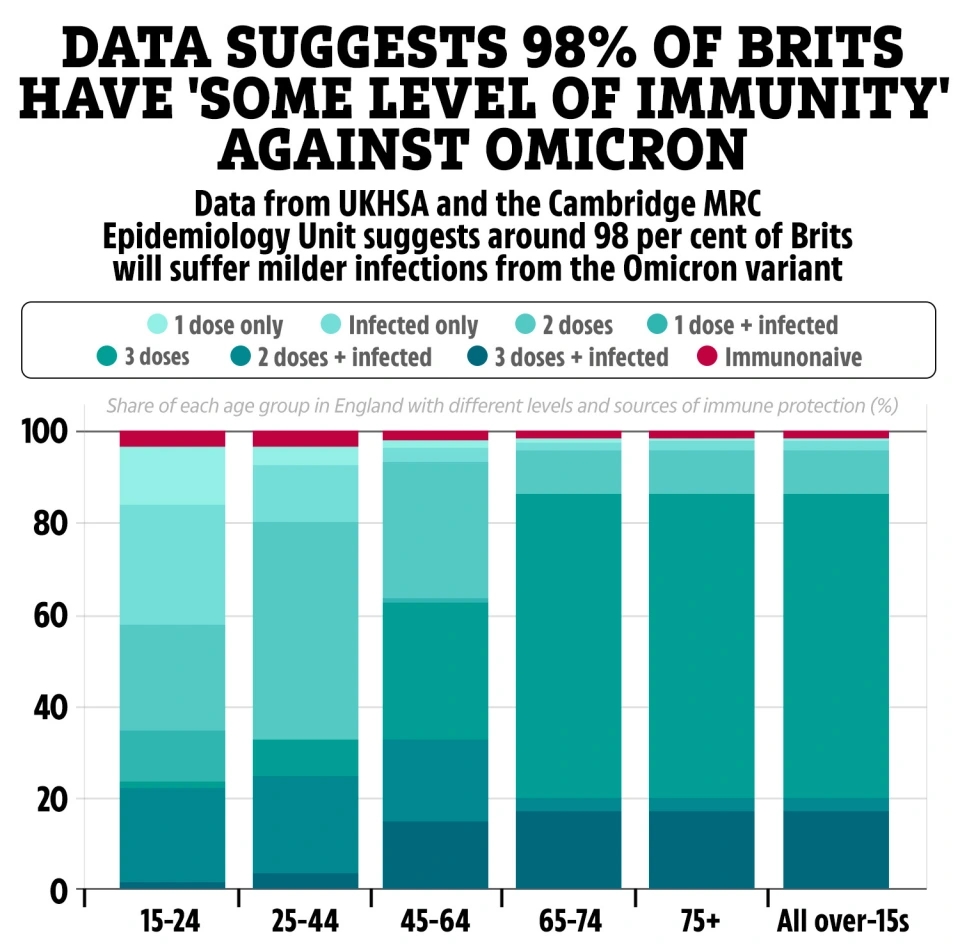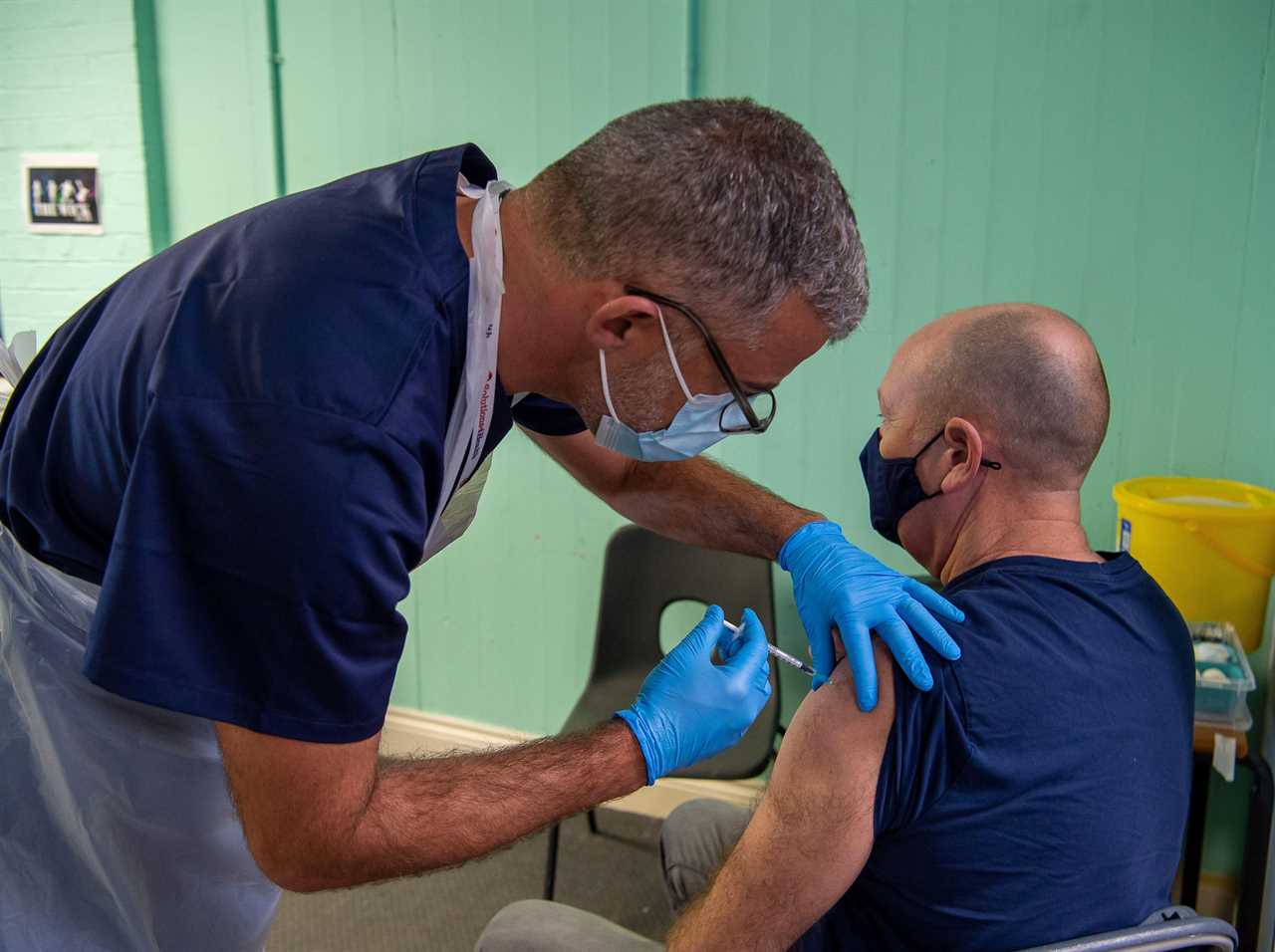THE Education Secretary has said the isolation rules will be reviewed as experts have admitted their initial death predictions about Omicron were wrong.
Nadhim Zahawi argued that reducing the isolation period for coronavirus from seven to five days could help reduce staffing shortages.
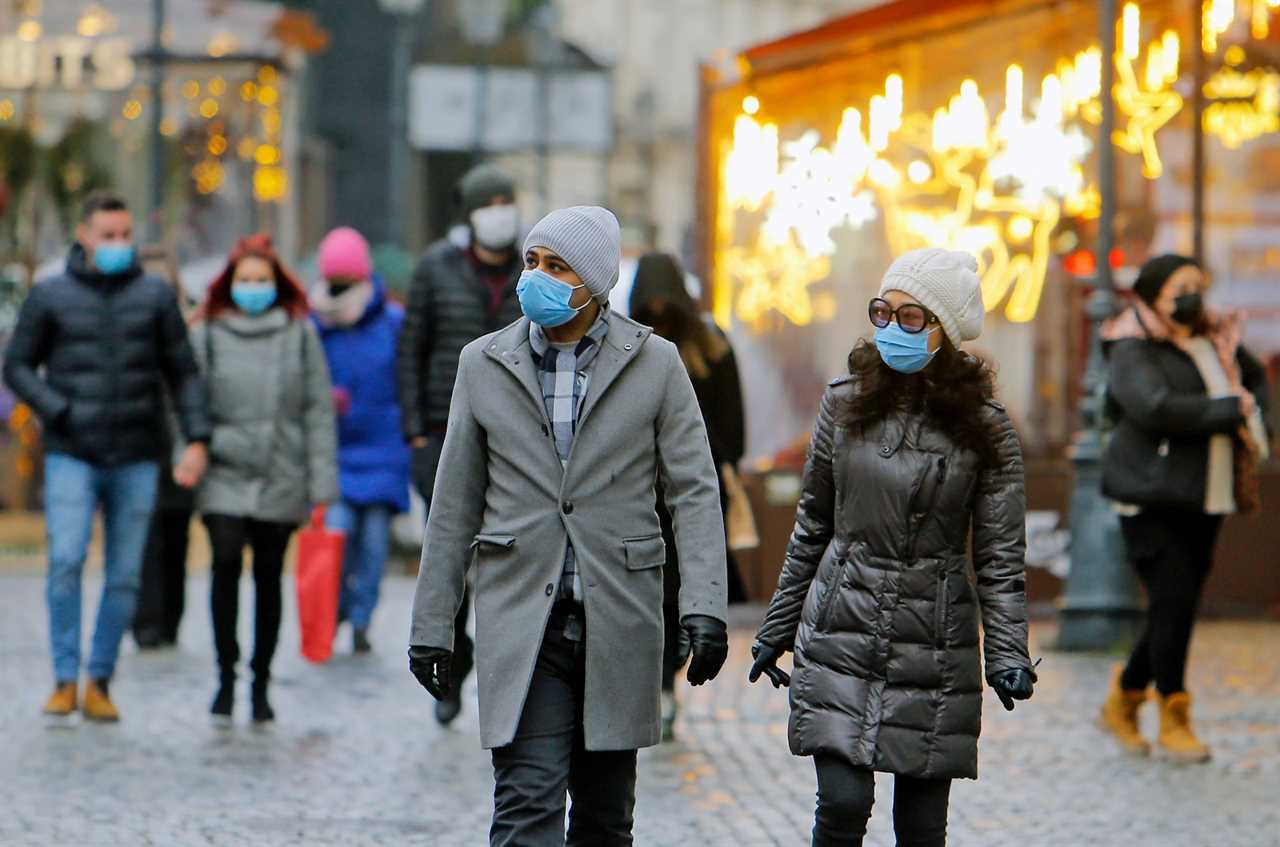
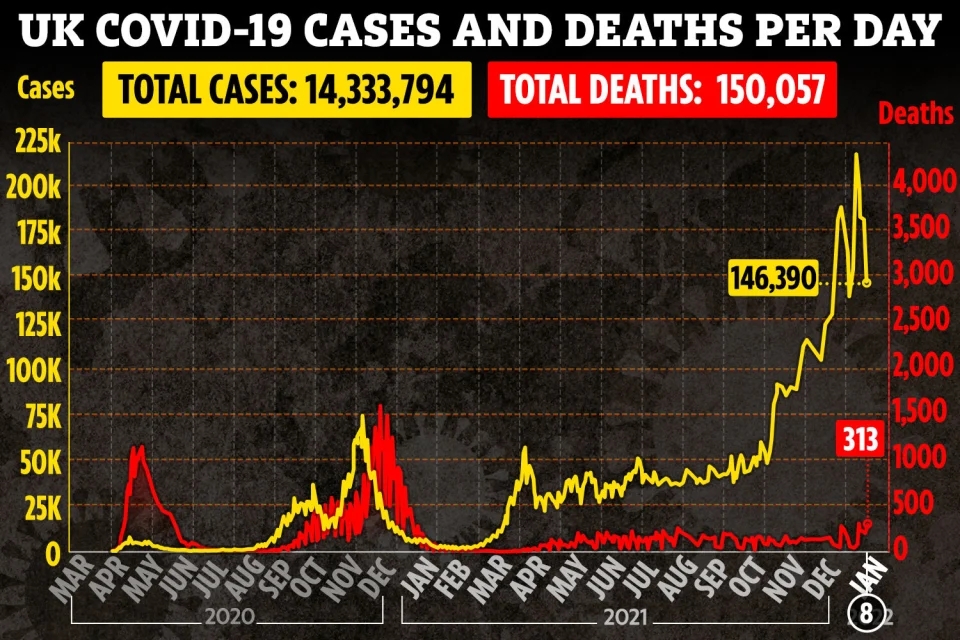
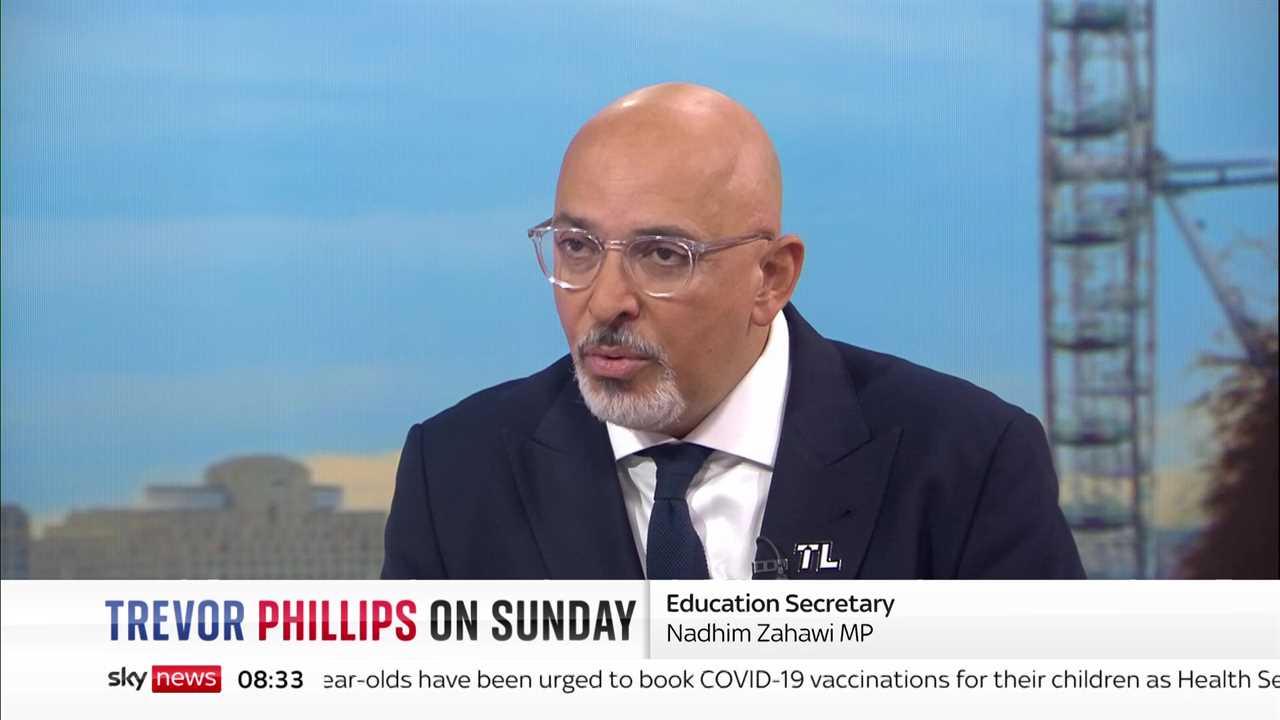
Speaking to Sky’s Trevor Phillips, he said: “Actually we begin our isolation period when people get symptoms.
“In the US it’s when they test positive so we have to be careful as to whether we move because what you could end up with is actually a perverse incentive where the spike is higher because people come out of it too early.
“But they said they will review it and if the evidence is there where if you are asymptomatic and you are vaccinated and boosted and you have two days of seven days of negative lateral flow tests they said that they will keep that under review.
“It would certainly help mitigate some of the pressures on schools, on critical workforce and others.
“But I would absolutely be driven by advice from the experts, the scientists, on whether we should move to five days from seven days.
“What you don’t want is to create the wrong outcome by higher levels of infection.”
He added: “I hope we will be one of the first major economies to demonstrate to the world how you transition from pandemic to endemic, and then deal with this however long it remains with us, whether that’s five, six, seven, 10 years.”
And speaking to Trending In The Newsday Times, the Education Secretary said cutting the isolation from seven to five days would be “more helpful”.

Follow our Covid live blog for all the latest updates
He said: “The UK Health Security Agency (UKHSA) have said they want to review it, so we will stick to seven days but if they review it and say they will bring it down to five days that is even better for me, it’s even more helpful.”
Mr Zahawi also told the paper he believes the UK is “witnessing the transition of the virus from pandemic to endemic”.
His comments come after parents were urged to book jabs for their children as official Covid deaths passed 150,000 in the UK.
It comes as a string of hugely positive studies show Omicron IS milder than other strains, with the first official UK report revealing the risk of hospitalisation is 50 to 70 per cent lower than with Delta.
Covid booster jabs protect against Omicron and offer the best chance to get through the pandemic, health officials have repeatedly said.
Trending In The News’s Jabs Army campaign is helping get the vital extra vaccines in Brits’ arms to ward off the need for any new restrictions.
Around half a million vaccination appointments are being made available online in England for the 12 to 15-year-olds during January, a senior doctor has said – with slots available at around 500 walk-in sites and 300 centres.
The Health Secretary has slammed “anti-vaccination fanatics” after he revealed that nine out of ten Covid patients in ICU have not had their booster jab.
Writing in the Mail on Sunday, Sajid Javid said that a “shocking 70 per cent of Covid patients taking up beds in intensive care were unvaccinated…” before branding “disappointing” that tennis star Djokovic is “fuelling scepticism” about the vaccines.
Meanwhile, the experts who had initially warned Britain needed to impose harsh measures or face thousands of deaths admitted they were wrong.
Modellers who advise the Government admitted that winter deaths by Omicron would be “substantially” lower than they had anticipated, mainly because the strain is less deadly as they thought Mail Online reports.
Dr Nick Davies and his team at the London School of Hygiene and Tropical Medicine built the original models assuming Omicron was equally lethal to the Delta strain.
He said: “We now know that doesn’t seem to be at all the case, as people are ending up in hospital with Omicron, but they are not requiring critical care [to the same extent as with Delta]”
“The deaths number will come down very substantially [compared with original estimates].”
He added: “It’s clear that our understanding of Omicron has changed substantially in the last two weeks.”
It comes as experts believe coronavirus will be as mild as the common cold in months and the world will go back to normal.
Additionally, SAGE said there is no need for further restrictions.
It said: “The measures we need now are less a matter of restriction than providing the communications, protections and support necessary to reduce infections and shorten the crisis we now face.”
Experts say Britain could be the “most immune country in the world” as data show around 98 per cent of over 15s in the UK have some resistance to the Omicron variant.
Dr Raghib Ali, Clinical Research Associate, MRC Epidemiology Unit, University of Cambridge said that it could be why hospitalisations with the virus remain low but encouraged Brits to continue to follow rules to not risk overwhelming the health service as staff absence is a “major problem”.
Meanwhile, the Scottish Health Secretary Humza Yousaf has said Scotland is not considering further reducing its quarantine period after UK Government Education Secretary Nadhim Zahawi backed dropping England’s quarantine from seven days to five.
Mr Yousaf told BBC Breakfast it had been risky for Scotland to reduce its isolation period from 10 days to seven.
“The reason why we have made that decision – and it’s important to say that the UK nations all moved at a different pace on this – is that it’s not a risk-free option,” he said.
“It’s not that there isn’t a risk attached with going from 10 days to seven days, there is a risk.
“It’s just that we wanted time to consider whether or not we would, inadvertently, for example, accelerate the transmission of the virus by cutting that isolation period.”
He said on the issue of a further reduction, his Government were “intending to keep that matter under review, but we’re not contemplating at this stage going from seven days to five”.
“It’s not something we’re contemplating, we’ve literally just made the change from 10 days to seven days. I think it’d be sensible to see the impact and the effect of that. But, clearly, we’re always guided by the science,” he added.
